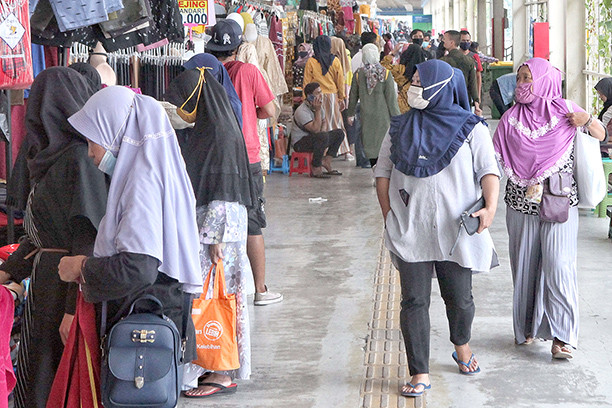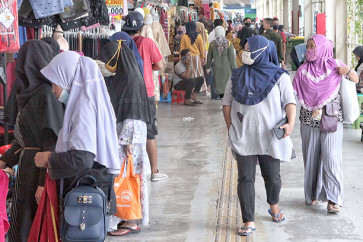Popular Reads
Top Results
Can't find what you're looking for?
View all search resultsPopular Reads
Top Results
Can't find what you're looking for?
View all search resultsIndonesia's pandemic recession: What it means for you and the economy
This means there are fewer jobs, people are earning and spending less and businesses have stopped expanding or even shut down.
Change text size
Gift Premium Articles
to Anyone
T
he Indonesian economy enters its first recession since the 1998 Asian financial crisis, bringing two decades of economic expansion to an end as the coronavirus pandemic has caused a sharp economic slowdown, throwing millions into poverty and out of jobs.
Economists define a recession as contractions in two consecutive quarters, marking a significant decline in economic activity spread across the economy.
This means there are fewer jobs, people are earning and spending less and businesses have stopped expanding or even shut down.
Individuals and businesses in tourism, transportation, accommodation and food and beverage may be feeling the greatest pinch as Statistics Indonesia (BPS) data show that they were the worst-performing sectors in the third quarter this year.
The transportation and warehouse sectors contracted 16.7 percent from a year ago as people stayed at home, while the accommodation and food and beverage sectors declined 11.86 percent as diners avoided restaurants and travelers avoided hotels.
Only 3.56 million foreign tourists have visited the country this year as of September, down 70.57 percent from the same period last year, BPS data show. The economic crisis will also hit the informal and service sectors hard, according to several economists.
As a result of the pandemic, the Indonesian economy shrank 3.49 percent in the third quarter after contracting 5.32 percent in the second quarter.


















